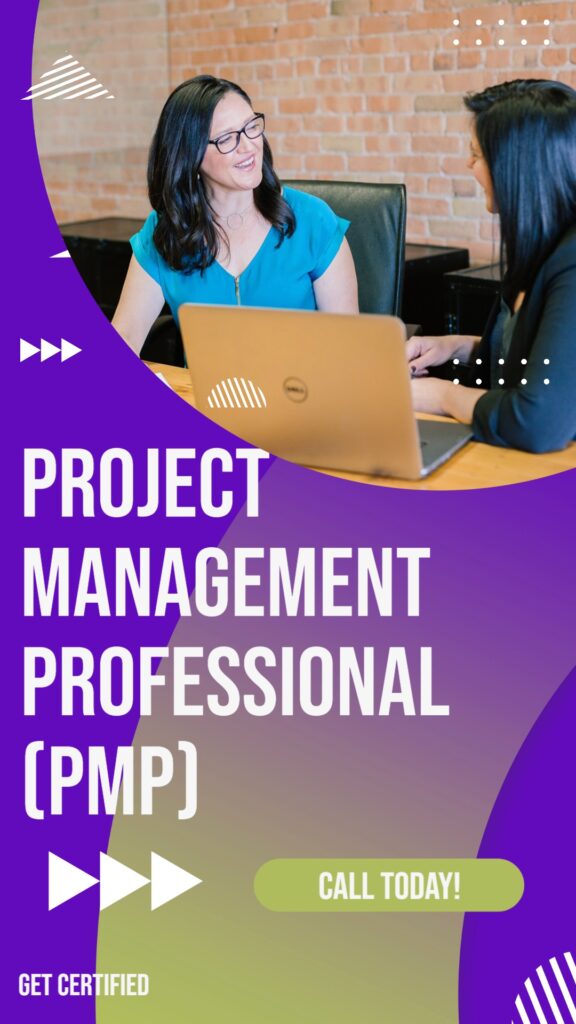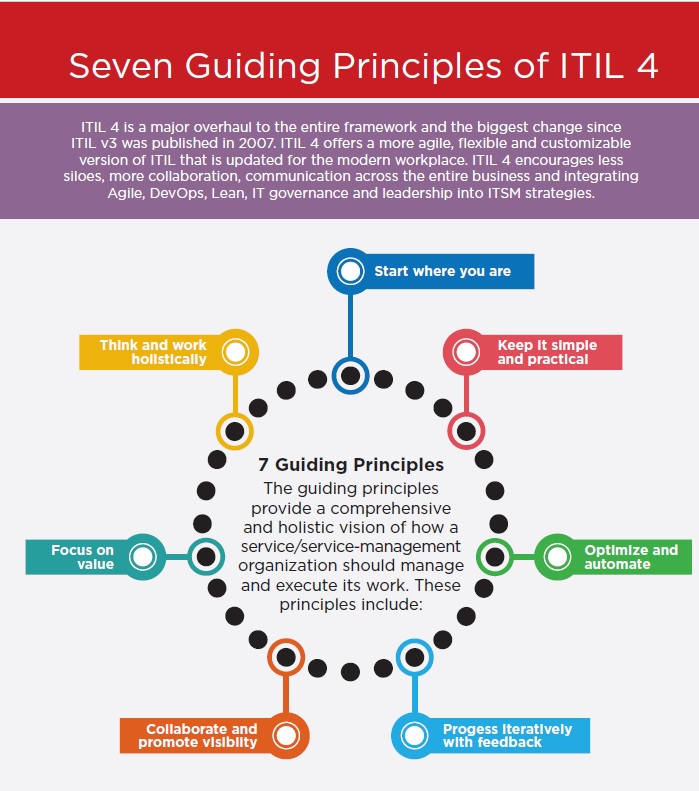What are the best management certifications?
What are the best certifications for managers?
One of the best ways to boost your career opportunities is to get certified in your field. If you want a career in Project Management, then certification programs are an excellent way of showing potential employers that you have the project management skills, business acumen, leadership skills, and deep knowledge they need. In today’s job market, having the right management certifications can give you a serious edge over other job seekers. Studies show that having a project management certification on your resume can result in an opportunity for a significant pay raise, more job offers, and a faster time to the top. And with so many management certifications to choose from, how do you decide which project management courses and certifications to get?
Here, we will provide a guide for the most sought-after management certifications in 2021.
Table of Contents

How to select the right certification
Certifications are a valuable addition to your qualifications. Unlike a degree from universities, professional certifications are for a specific set of career skills. When you choose a professional certification, the purpose should be to give you more career opportunities and higher income. If you are working, start with your employer. Ask your supervisor and HR department to help guide you–which ones they look for. If you are unemployed, look at your local job market and see which ones that employers in your area want. Pay close attention to the skillset and industry that the certification and make sure this is the direction where you want your career to go. Also, pay attention to the degree of difficulty involved to pass the exam
How much do Project Managers make?
According to Salary.com, the average salary for a Project Management Manager in the United States is $140,508 as of September 25, 2023, but the range typically falls between $125,520 and $157,000. The average salaries can vary widely depending on many important factors, including education, certifications, additional management skills, the number of years you have spent in your profession. There is always good demand from those with demonstrable leadership skills.

Here are the top 10 certifications for management roles:
1. Project Management Professional (PMP) certification
The Project Management Professional certification from the Project Management Institute (PMI) is widely used to manage project executions and tasks and manage project teams. This certification is relevant for many roles such as project managers, construction managers, consultant managers, and IT managers. The Project Management Professional (PMP) is one of the most popular project management courses and is in a class by itself. It is the most recognized project management certification and demonstrates your ability to manage complex projects because of your firm grasp of project management principles. You also learn about the best project management practices as well as project risk. These are the concepts that employers want you to learn. Each year this is among the top 5 certifications and is consistently ranked as the top one for management. Upon completion, you will see a significant boost to your marketability because of your certification and newfound project management knowledge. If you meet the requirements, this should be your first choice for project management education. The average salaries for project managers with this certification are higher than those without this certification:
According to PMI, on average individuals who are PMP certified earn 22% more than those project managers that do not have the certification.
Project Management Professional (PMP) Requirements
You must have the following prerequisites:
With a degree: Minimum 36 months project management hands-on experience for individuals with a four-year degree (bachelor’s) or global equivalent plus 4500 hours of project management experience.
Without a degree: Minimum 60 months project management experience for individuals without a secondary degree (high school, associate’s degree, or global equivalent) plus 7500 hours of project management experience.
You must take a class–Project Management Training: 35 contact hours of formal project management education. This can be online courses or in-person.
Ethics: Agree to PMI’s Code of Ethics and Professional Conduct
Note: PMI is more liberal about what counts as experience. Before you think you may not qualify, check with us first.
Pass the PMP Exam
The PMP certification exam is one of the more challenging ones, so be prepared to set aside a lot of time for study. We give you practice exams to make sure you are ready before your test. You need to find a program whose instructor has a high pass rate.

2. Scrum Master Certification
Scrum Master certification is widely used for agile project management. For many roles such as project managers, IT managers, and consultant managers. Scrum is one of the most popular Agile project management methodologies and is used in a wide range of industries. The growing popularity of Agile project management methods has resulted in huge demand. This is consistently ranked as a top project management certification and is one of our most popular project management courses.
You may see some arguing that one Scrum Master program is better than another because there is more than one body, (ScrumStudy, Scrum.org, Scrum Alliance). The vendors themselves sometimes go overboard in promoting theirs versus the others, but they are all good.
This Scrum Master certification exam is moderately challenging.
3. ITIL® 4 Foundation
The IT Infrastructure Library (ITIL) is a set of descriptions and detailed guidelines for best practices in IT Service Management. It is a structure that organizes and defines the best practices for IT Service Management in a way that provides value to IT organizations. If you are considering becoming a Certified Practitioner in ITIL, you will need to take the ITIL Foundation exam. This test will help determine your knowledge of the ITIL® processes, as well the general concepts that are involved in IT service management. ITIL Foundation is a very popular certification in project management.
This certification exam is moderately challenging.
4. DevOps Foundation
One of the biggest challenges organizations have today with DevOps is that the IT department is not always involved in adopting the DevOps processes. The DevOps Foundation® course provides a foundation of key DevOps terminology to ensure everyone is on the same page to support organizational success. This project management certification is newer than some of the others, but as more companies adopt a DevOps program it is gaining in popularity.
This certification exam is moderately challenging.
5. DevOps Leader
The DevOps movement has taken the software development world by storm, and cloud computing has also become an integral part of the developer’s toolbox. Unfortunately, knowing how to use these new technologies to your advantage does not necessarily mean you know how to lead a team of developers or project teams. This is where certifications come in. DevOps Leader Certification is a new certification that shows that an individual has not only the technical skills needed to work in a DevOps team but also the project management leadership skills needed to ensure that the team is working effectively.
This certification exam is moderately challenging.
6. Certified Associate in Project Management (CAPM)
The Certified Associate in Project Management certification is widely used to manage project execution and tasks. This certification is also from the Project Management Institute (PMI) and is relevant for many roles such as project managers, construction managers, consultant managers, IT managers, and facility managers. If you do not meet the requirements for the Project Management Professional (PMP) certification program, this is a good second option to getting your project management certification. Unlike the PMP, there is no prerequisite experience requirement.
This exam is moderately challenging and much easier than the Project Management Professional (PMP) certification.
7. Lean Six Sigma Green Belt
The Lean Six Sigma Green Belt is widely used to manage quality and efficient use of resources. . Lean Six Sigma Green Belt Certification is an entry-level certification that is perfect for those just starting out in the field. However, those who have been practicing Lean Six Sigma for years can also get a kick out of earning their Green Belt. The coursework is short, and the exam is easy, but you’ll come away with a wealth of knowledge
This exam is easy compared to others, but you can’t blow it off and not study for the materials.
8. Lean Six Sigma Black Belt Certification
Lean Six Sigma Black Belt Certification is a global standard for professionals who seek to improve processes in business or industry. It is the highest of the Lean Six Sigma certifications, and it offers several benefits to employers, including increased employee engagement, improved quality, reduced costs, and better customer service. If your employer has adopted the six sigma program, this will establish you as a leader. We see the greatest demand for Six Sigma in engineering, production, and surprisingly, in finance. If you work in Project Management Professional (PMP) certification in one of these fields, you should get one of the Six Sigma certifications.
The Six Sigma Green belt is not a prerequisite but is highly recommended.
This exam is moderately challenging.
9. PMI Agile Certified Professional (PMI-ACP)®
PMI Agile Certified Professional (PMI-ACP)® is a title that is used to describe people who have been certified as having met the requirements for the PMI Agile Certified Professional (PMI-ACP)®. The exam was created by the Project Management Institute to help professionals gain a greater understanding of the 12 principles that are in the Agile Manifesto. This Agile project management certification is intended for project management professionals who have knowledge and experience in agile methodology. It is appropriate for both project managers and business analysts, as well as those who are active participants in an agile team. The course is set up by Agile coaches, trainers, and consultants to be practical and relevant.
This exam is challenging. This is a difficult program, so I usually recommend Scrum Master instead unless your employer wants this one.
Here are the prerequisites:
Secondary degree
21 contact hours of training in agile practices
12 months of general project experience within the last 5 years. A current PMP® or PgMP® will satisfy this requirement but is not required to apply for the PMI-ACP.
8 months of agile project experience within the last 3 years

10. Scrum Product Owner
A product owner is responsible for tracking what features are developed and for articulating a product’s vision. Product owners have knowledge of the market, middleware, and customers. Scrum Product Owner is designed to confirm applicants’ practical and working knowledge of Scrum that equips them to handle the business aspects and stakeholders in a Scrum environment. A product owner is responsible for tracking what features are developed and for articulating a product’s vision. Product owners have knowledge of the market, middleware, and customers.
This exam is moderately challenging.
Honorable mentions
Prince2
PRINCE2 (PRojects IN Controlled Environments) is a structured project management method and practitioner certification program. PRINCE2 emphasizes dividing projects into manageable and controllable stages. PRINCE2 was developed as a UK government standard for information systems projects, then transferred later to Axelos.
Prince2 course and certification have two levels. Prince2 Foundation and Prince2 Practitioner.
.
Prince2 Foundation
The Prince2 Foundation course gives you an introduction to the Prince2 method. This will help you be able to work effectively as a member of a project management team following the Prince2 method. This Prince2 Foundation is a prerequisite for the more advanced Practitioner level Prince2. Upon successful completion of your Prince2 foundation, you can advance.
Prince2 Practitioner
The Prince2 Practitioner is for individuals who are managing projects as a part of their role. This could be a project management function. or a role that may benefit from the effective management of a project. The objective of the Practitioner level course is to state that you have a deep understanding of the Prince2 method and knowledge.
It’s a great certification–if you live in the UK, Europe, or Australia, but is not as popular in the US. Unless your employer is looking for it, I would recommend PMP instead
.
CompTIA Project+
By earning this credential, you can demonstrate your skills in the management of technology projects. The exam covers a wide range of project management best practices; it tests your knowledge of the principles of project management, the steps in the project management process, the project management life cycle, the roles and responsibilities of project managers and stakeholders, and how to develop and execute effective project plans. (It also covers the role of project managers in software development.)
Next Steps
We can help you move forward with your management career. Make an appointment for a consultation and let’s see which path is the best fit for you. Then let’s see if you qualify for a grant or no-risk option to help you get started and take the next step forward in your career.
See if you Qualify for a WIOA Grant
Are you unemployed? There is a little known federal grant program that can pay for you to get trained, certified and placed in your career at no cost to you. Availability and amounts are based on where you live. If you qualify, this program can pay up to $10,000 to get trained, certified, and then get help getting placed in their career. The amount and availability vary by county
This can be used to get certified in fields such as Cyber-Security, Information Technology, Project Management, Business Analysis, and more. Some of the most highly sought-after certifications include CompTIA, Microsoft, Cisco, Project Management Professional (PMP), Scrum Master, and others.










